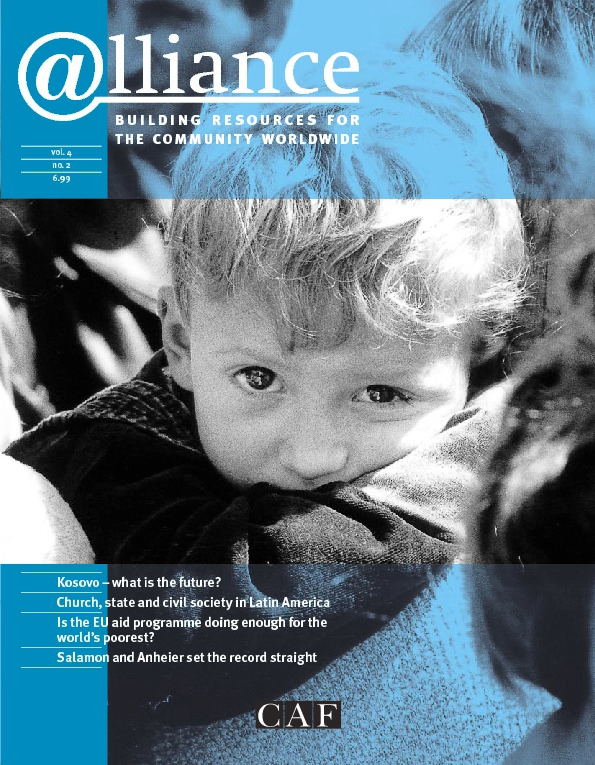Contrary to what many people believe, religion is not necessary to provide a basis for morality and concern for others. Our evolved history and moral sensibility have given us shared human values and the ability to empathize with others. This drive and basic reasoning lies at the heart of the charitable giving of many people, in the UK and elsewhere, who are either non-religious or only nominally religious.
Reason, Observation and Experience – the Holy Trinity of Science – have taught us that happiness is the only good; that the time to be happy is now, and the way to be happy is to make others so.
(Robert Green Ingersoll, 1876)
As man advances in civilisation, and small tribes are united into larger communities, the simplest reason would tell each individual that he ought to extend his social instincts and sympathies to all the members of the same nation, though personally unknown to him. This point once reached, there is only an artificial barrier to prevent his sympathies extending to the men of all nations and races.
(Charles Darwin, The Descent of Man, 1871)
If the capacity for evil is part of human nature, so is the capacity for good.
(Professor A J Ayer, 1968, as President of the BHA)
My country is the world, and my religion is to do good.
(Thomas Paine, The Rights of Man, 1791)
Just as the sun does not wait for prayers and incantations to persuade it to rise, but shines anyway and is universally loved, so you should not wait for applause and praise in order to do good; but be a voluntary benefactor and you will be beloved like the sun.
(Epictetus, 1st century CE)
God, Immortality, Duty … How inconceivable the first, how unbelievable the second, and yet how peremptory and absolute the third.
(George Eliot, 1881)
Among such non-religious people are humanists – who have long been involved in charitable giving, both of money and of practical skills and time.
What is a humanist? A humanist can be described in terms of three elements:
our temperament – positive, optimistic, solution-seeking, outward-looking, aware;
our appraisal of the world around us – naturalistic, seeing no evidence for souls, for an afterlife, or for any god which will intervene in human life;
our ethical undertaking – aiming to take responsibility for our actions and, as far as we are able, for wider human welfare. This ethical undertaking is a terrifying goal, its scope and implications vast.
While humanists are non-religious, not all non-religious people are humanists. Clearly there are many atheists and agnostics who do not share these active ethical concerns, but the same is true of people of all religions and denominations. In the UK, for example, surveys have indicated that about one third of the population is not religious but only about one third of these also meet the ethical element of humanism – about 10 per cent of adults. Worldwide, humanism is rather less common, since as much as 97 per cent of the population of some countries may be religious. But humanist organizations now exist in most countries.
The British Humanist Association arose in 1967 from the century-old Union of Ethical Societies. At the end of the nineteenth century this had pioneered educational courses for workers in London and social events for young people who were not members of a religious organization. Later it set up an adoption agency and a housing association.
However, to be a humanist you do not need to have read a particular book, joined an organization, or been taught by particular people. You do not even need to have labelled yourself as a humanist. For, unlike the major religions, humanism can develop in a person quite autonomously, for its foundations are human moral sensibilities and the basis of evidence and reason that are taught in schools in most nations.
A shared moral foundation
It is important to note that humanists are not relativists; we support shared human values, many of which are effectively absolute. As humans, we share a common evolutionary inheritance and complex social history. The Golden Rule, derived by theologians and humanist philosophers, ‘Do as you would be done by’, is just one expression of this common heritage. Our shared humanity is more fundamental than religious and other metaphysical beliefs, the modern forms of which have arisen relatively late in human history.
We are tribal animals, biologically closer to tribal chimpanzees and lemurs than to the more solitary orangutan. From early childhood we learn that we depend on other people, as they depend on us, for a happy, safe and sustained life. And so we accord to others the values we give ourselves, and so we build on our natural moral sensibility.
A modern framework for shared human values – such as love, respect, honesty, health, community, education, and so on – can be found in human rights. In many ways, the language of human rights and responsibilities is the modern, international and secular language of morality, and thus of charity.
While human welfare is paramount, humanists consider the conservation of the environment vital to the well-being of future generations. As believers in evolution, we recognize our degrees of kin with other animals and thus our desire not to see them suffer.
Charitable action and campaigning
Through a blend of campaigning and direct charitable giving, humanists, like many religious people, are concerned to achieve longer-term benefit for others as well as short-term relief of suffering. A recent BHA survey indicated that 60 per cent of the members polled regularly gave their time and skills to charities, while 36 per cent gave facilities such as office space and 94 per cent gave money.
The causes supported by humanists were revealing. Lower down the list than in national surveys came appeals that already enjoy strong national support: charities for deaf people and blind people, appeals to protect tigers, national heritage charities. High on the list were less popular causes: human rights campaigns and direct overseas aid for sanitation and water, for example. Environmental projects supported were often those with less emotional appeal than tigers and rainforests: preservation of wetlands, wildflowers, ocean life. There is a historical tradition of brave non-religious people campaigning against mainstream views or practices that would now be considered inhumane or discriminatory – such as the display of people from remote nations like creatures in zoos, or the endorsement of slavery or the death penalty, or the disregard for other animals thought to have no soul.
Humanists do not overtly combine relief/development work with the spread of their beliefs. The very hope of salvation, of a paradise, a heaven, an eventual nirvana, can be a clear comfort to many millions of people facing starvation, pain and poverty. Without providing happiness there and then, it could not be ethical to take away that comfort. If there is nothing beyond this life, it is a human duty to make this life as happy and fulfilled as possible for all humans, as much as it is a human right to ask others to help in this.
Working with religious people
Today, many charities throughout the world have no particular religion or denomination as justification for and guidance in their work, and many explicitly religious charities employ, and work for the benefit of, those of other religions or no religion – as do humanist organizations.
Cooperation between charities of different belief-backgrounds has been a strong influence in the remarkable inter-faith movement, and has perhaps acted as a spur to religious leaders to meet and work together. Indeed, international umbrella groups and agencies do tend to bring together people with a wide range of beliefs, amicably focused on real tasks, and so developing a framework of mutual understanding rather than a separate purpose of missionary zeal. Humanist organizations around the world are proud to be part of this profound and rapid change in world society.
Robert Ashby is Director of the British Humanist Association, and may be contacted at robert@humanism.org.uk
International Humanist and Ethical Union
IHEU was founded in 1952 by British and Dutch humanists. Today it has member groups in 37 countries and supports projects in some 15 countries, often those with oppressive political or cultural regimes which exclude free-thinking people. The network deals with human rights issues, access to healthcare, education and empowerment. It also challenges the hold of superstitious beliefs and practices which have compounded repression in many communities.
Regional networks of humanists are a very successful initiative. In South Asia, for example, the many fledgling and established humanist groups are being linked for the first time. After initial development work and funding, the coordination of the network was handed to the Indian Radical Humanist Association in 1995/96, with open access to continuing advice from IHEU.
An Ibero-American network based in Costa Rica was developed by IHEU and given set-up funding and consultancy in 1995. It already has member organizations in Mexico, Argentina, Chile, Colombia and Peru. Networking has reduced ‘reinvention of the wheel’ and has provided moral support and motivation in educational and human rights work. In several states in Argentina, for example, religious minorities and humanists are actively discriminated against, with profound effects on education and consequent access to work. The network has enabled support for teachers’ organizations and families and the rational lobbying of government.
In Bangladesh, the Assembly of Freethinkers was funded by IHEU and has distributed medicine, clothes and safe drinking water in the aftermath of floods, with particular attention to counselling and providing emotional support.
New IHEU projects include the empowerment of women in Nepal, inclusive humanist schools in areas of religious intolerance in India, adolescent education projects in Mumbai slums, and development work in Eastern Europe to foster self-sustaining networks. IHEU is pleased to work alongside the many inclusive development and aid organizations which operate regardless of belief and which have no mission other than human welfare.
For more information
http://www.iheu.org



Comments (0)